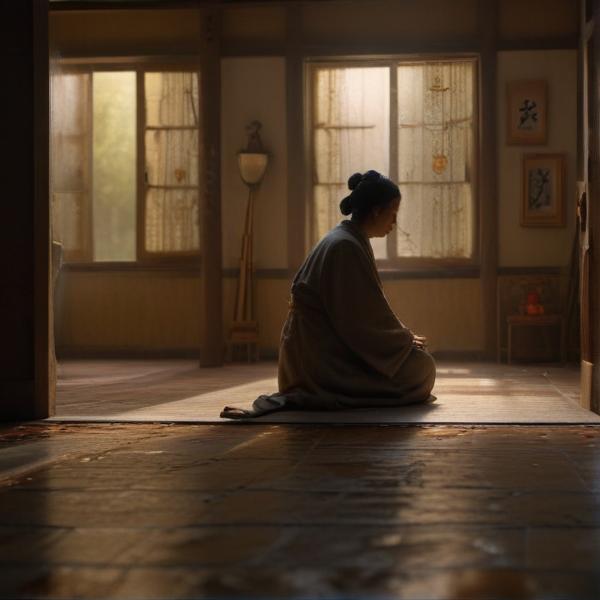基本信息 (Basic Information)
含义与用法 (Meanings & Usage)
中文核心释义 (Core Chinese Meaning): 年老的男子、老人,也可作尊称老年男子的用语,部分情况下指长者或父亲。
英文核心释义 (Core English Meaning): Old man, elder; a respectful term for an elderly man, sometimes refers to a father or senior.
象形意义 / 为何这么写 (Pictographic Meaning / Writing Rationale)
文言文释义 (Classical Chinese Meaning)
与现代意义相近,常指年长男子,有时借指父亲或尊贵者。Similar to modern meaning; commonly refers to an elderly man, sometimes used for father or a person of respect.
深入学习 (In-depth Study)
字源故事 (Origin Story)
字形演变 (Character Evolution)
常用词语和例句 (Common Words & Examples)
老翁 (old man, elderly man)
河边有一位白发老翁在垂钓。
Eng: An old man with white hair is fishing by the river.
家翁 (father-in-law (husband's father))
家翁身体安康,全家都很高兴。
Eng: The father-in-law is healthy, and the whole family is very happy.
相关成语 (Related Idioms)
渔翁得利
Meaning: The fisherman profits (refers to a third party benefiting from the conflict of two others)
多语言翻译 (核心释义) (Translations (Core Meaning))
- French: vieil homme, aîné
- German: alter Mann, Greis
- Spanish: anciano, hombre mayor
- Italian: vecchio, anziano
- Portuguese: ancião, homem idoso
- Russian: старик, пожилой мужчина
- Arabic: شيخ، رجل مسن
- Persian: پیرمرد، مرد مُسن
- Dutch: oude man, grijsaard
- Polish: starzec, starszy mężczyzna
- Vietnamese: ông lão, người già
- Ukrainian: старий чоловік, дідусь
视频学习资源 (Video Learning Resources)
通过以下链接在热门视频网站搜索 "翁" 的更多讲解:
Search for more explanations of "翁" on popular video sites:
- 在 Bilibili.com 搜索 "翁 字源 说文解字" (Search on Bilibili)
- 在 YouTube.com 搜索 "翁 character origin etymology" (Search on YouTube)
网络参考 (Web References for "翁") ()
网络内容摘要 (Web Content Summary):
翁字基本含义是指“年长的男子”或“老者”,常带有尊敬之意。 Wēng (翁) basically means “an elderly man” or “old gentleman,” often with a tone of respect.
在甲骨文和篆书中,“翁”字的构造源自“公”(表示白发老人)和“羽”,表达出长者、年长者的形象。 In oracle bone and seal script, the formation of “翁” includes “公” (symbolizing an old man with white hair) and “羽” (feather), visually suggesting the image of an elderly person.
- 文化背景:有传说“翁”作为姓氏的来源与白发老人相关,且与楚国历史人物传说有关。 Cultural note: There’s a legend connecting the surname “翁” to the image of an old man, and to historical figures in the Chu state.
- 相关词语或成语:如“老翁”(old man),但未见特别易混淆的用法。 Common combinations: Such as “老翁” (old man); there are no notable confusable usages.
总结: “翁”体现了尊老的文化理念,可用于指年长男性,也作姓氏使用,没有明显易混词。 Summary: “翁” reflects the cultural respect for elders. It describes elderly men, is also a common surname, and isn’t easily confused with other words.
补充:由于来源信息有限,如需深入了解该字的演变或更多典故,建议参考专业汉字辞典。 Note: Due to limited source information, consult specialized dictionaries for deeper etymology or anecdotes.
【翁,蓊】的甲骨文金文篆文字形演变含义 - 甲骨文研究网 甲骨文密码字典 在线甲骨文字典研究 - 甲骨文研究网 甲骨文密码字典 在线甲骨文字典 ...
2 《新编甲骨文破译案例解析 ... 日期:2023-03-19 来源:甲骨密码 评论:0 点击: 摘要. 汉字的来历和演变翁:(說文解字 篆體字)甲骨文密码【甲骨密码】蓊:蓊=艸+公+羽。【其他解读】公,表示白发老人。
翁姓汉字演变过程和翁氏起源荀卿庠整理 - 知乎专栏
王令香水沃其手。手即开,左手握公,右手握羽,合为翁字,遂赐姓翁,因妃见虹而孕,取名曰弘。此乃为翁氏受姓之源,翁氏先姓,盖肇于兹,翁弘后封楚国左臣,坟塟梁之原城五里。翁氏自此,兴于梁之原城,绵於京兆。
更多图片 (翁 More Images) ()
